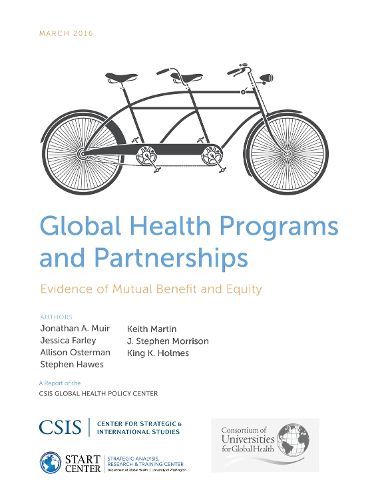Readings Newsletter
Become a Readings Member to make your shopping experience even easier.
Sign in or sign up for free!
You’re not far away from qualifying for FREE standard shipping within Australia
You’ve qualified for FREE standard shipping within Australia
The cart is loading…






Academic global health programs are proliferating, and global health partnerships between North American academic institutions and institutions in low- and middle-income countries are steadily increasing. This study employs surveys and key informant interviews to examine global health partnerships, and it presents a framework for success to guide the development of sustainable global health programs and partnerships with measurable, defined impact. Eighty-two North American academic institutions and 46 international partnering institutions participated in the survey. Key informant interviews were conducted with global health leaders at 15 North American academic institutions and 11 partnering international institutions. Quantitative data were analyzed using linear regression, and qualitative data were used in thematic analyses. The surveys and interviews provide evidence of mutual benefits resulting from these global health partnerships, as well as areas for further development and improvement.
$9.00 standard shipping within Australia
FREE standard shipping within Australia for orders over $100.00
Express & International shipping calculated at checkout
Academic global health programs are proliferating, and global health partnerships between North American academic institutions and institutions in low- and middle-income countries are steadily increasing. This study employs surveys and key informant interviews to examine global health partnerships, and it presents a framework for success to guide the development of sustainable global health programs and partnerships with measurable, defined impact. Eighty-two North American academic institutions and 46 international partnering institutions participated in the survey. Key informant interviews were conducted with global health leaders at 15 North American academic institutions and 11 partnering international institutions. Quantitative data were analyzed using linear regression, and qualitative data were used in thematic analyses. The surveys and interviews provide evidence of mutual benefits resulting from these global health partnerships, as well as areas for further development and improvement.